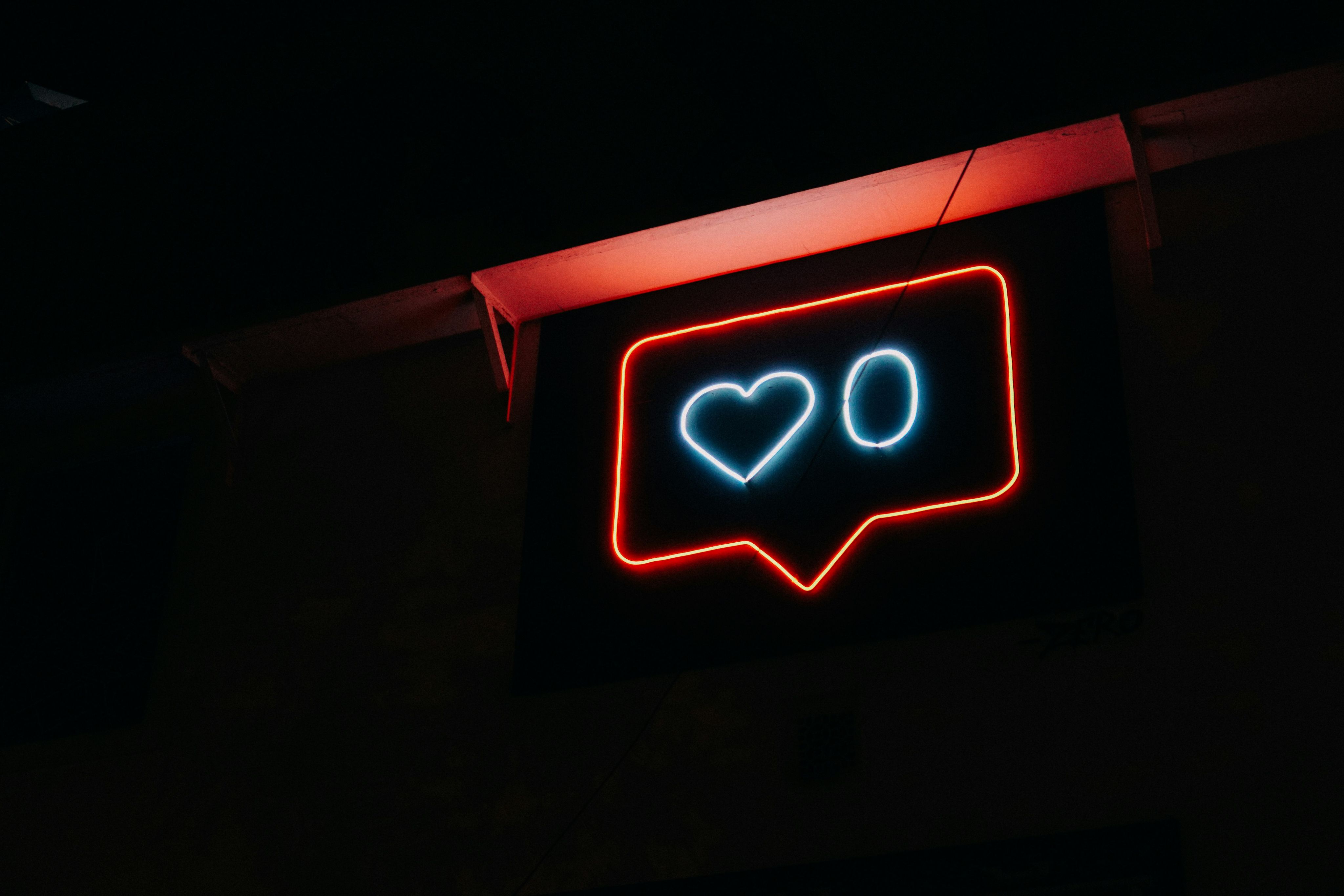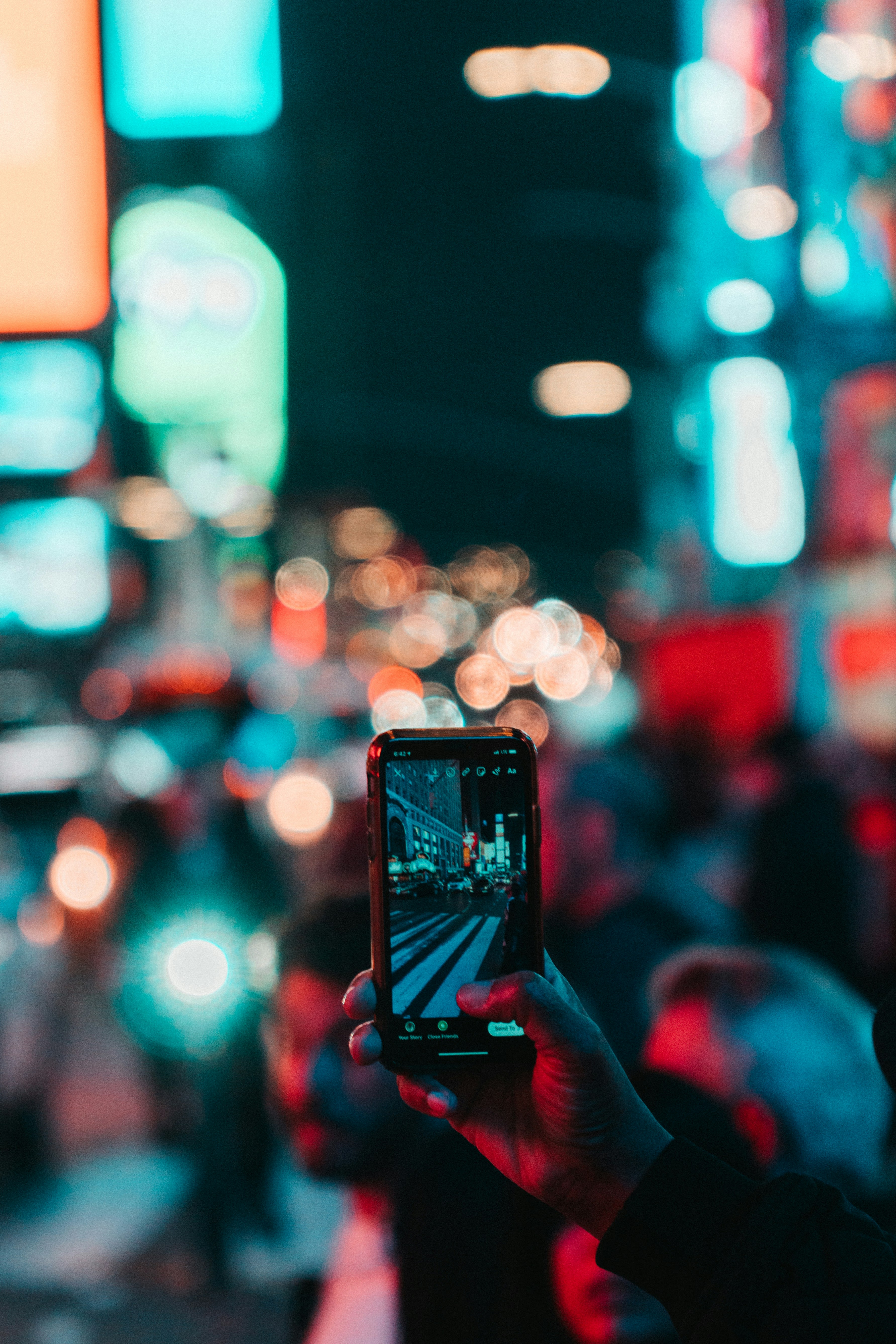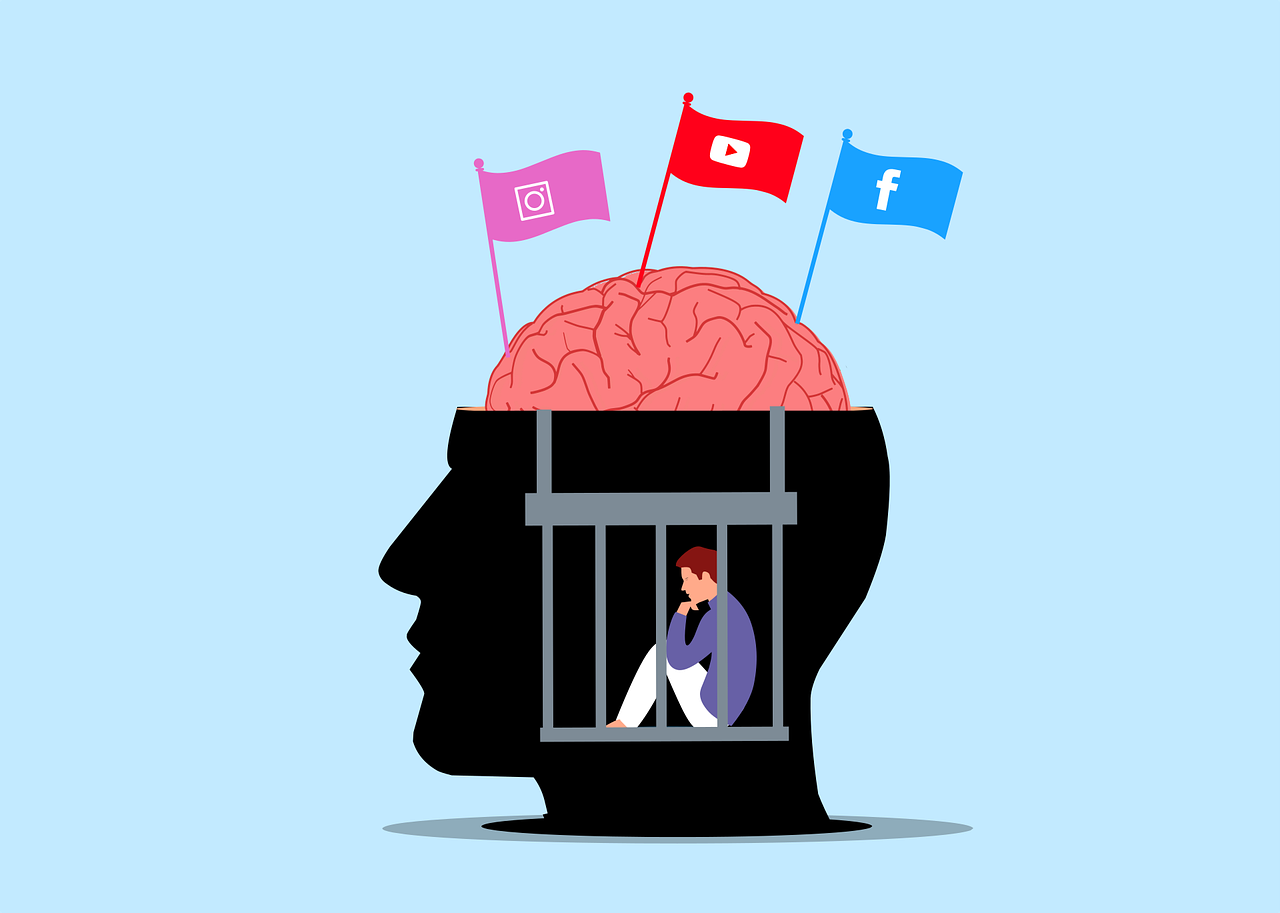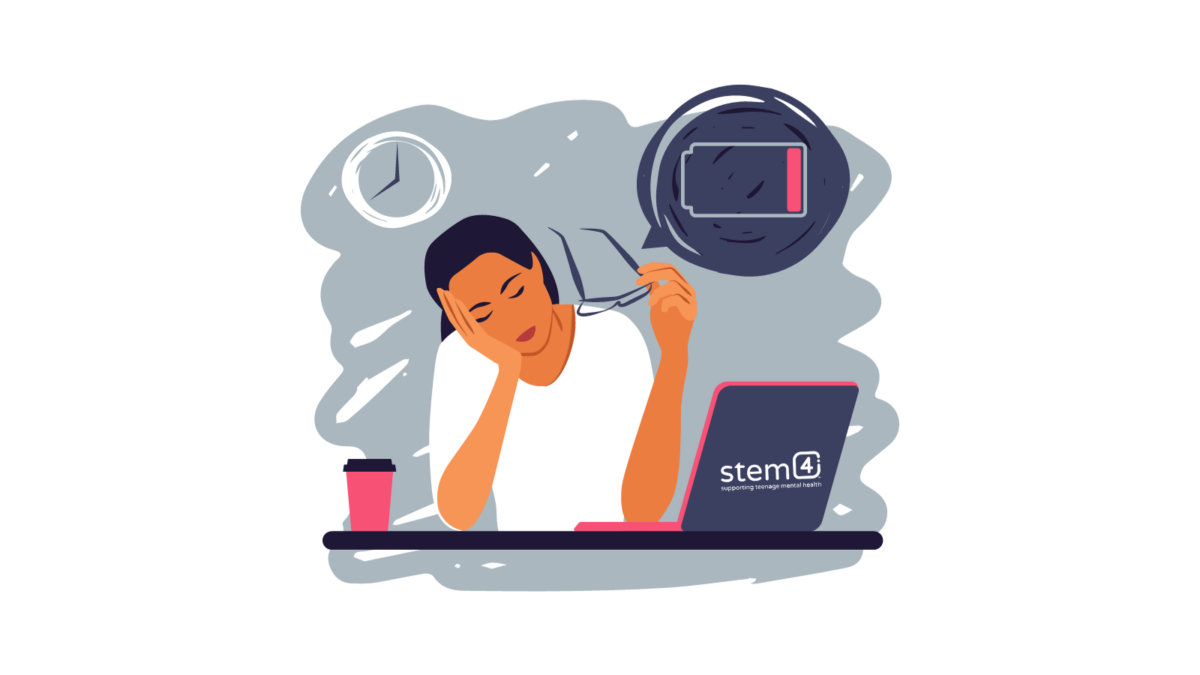Disconnected: Digital dependency in young people
The darkness that lies beneath the light of your screens.

The digital world we now live in has transformed the way in which we connect with others. In some ways this modification can be harmonious and gratifying for many as we have been given the tools to easily obtain information and interact with others at the touch of a screen. But as we have advanced into this new age it is hard to gloss over the negative impacts that digital dependency comes with, particularly in regards to social media.
It would be an understatement to say digitalisation has merely affected people's lives. It is a fact that it has formed a new way of life for all – particularly young people who now know no different. The way youths are able to socialise and consume information is at a preeminent level, and deciphering how to navigate this new realm of possibilities in a beneficial way can be difficult.
Most children become phone owners by the age of seven, according to a study by Childwise. The report, which was based on a survey of 2,167 five to 16-year-olds, said 53% of children owned a mobile phone by this age. One in four of these children spend four to six hours online each day, highlighting why there could be cause for concern in what such a young age group could potentially have access to.


Battling her own mind: Mairaed shares her own experience growing up with social media being a big part of her life. Credit: Mairaed Barber.
Battling her own mind: Mairaed shares her own experience growing up with social media being a big part of her life. Credit: Mairaed Barber.

Battling her own mind: Mairaed shares her own experience growing up with social media being a big part of her life. Credit: Mairaed Barber.
Battling her own mind: Mairaed shares her own experience growing up with social media being a big part of her life. Credit: Mairaed Barber.
Mairaed's story
As a young woman who has been active on social media from the age of 11, Mairaed Barber, 21, expresses her struggles with self image that are exacerbated by the use of social platforms such as Instagram and TikTok.
Mairaed said: "From a very young age I have compared myself with other people.
"I feel like whenever I open Instagram or TikTok I am shown pictures and videos of girls who are living a dream life and sometimes it can be disheartening.
"My feed is constantly filled with flawless toned bodies and people's perfectly regimented routines and it makes me feel like I am never doing enough."
Mairaed shared how she often spends up to four hours flicking through her social media apps before bed, leaving her feeling anxious.
She said: "I usually find myself doing the same thing everyday, I start scrolling and before I know it hours have passed.
"I don't know why I do it because every time I get feelings of anxiety and I always start to beat myself up for not getting as much done as I wanted to in a day.
"I will sit there for hours and watch these influencers perfect lives and faces and just can't help but compare myself to them in every way.
"Especially because a lot of the content I watch is from girls around my age so it makes it hard not to compare myself."
Mairaed's concerns are widely shared amongst young people. The Cybersmile Foundation, an organisation committed to digital wellbeing, published their Comparison Culture 2023 report which explored the impact of social comparisons on Gen Z in the UK. It found that of the 1000 participants, one in 10 said that they see themselves negatively and feel dissatisfied with their lives.
On top of that, every three in four respondents said they want to change aspects of their bodies. At such a young age, this is something Mairaed can also relate to.
When discussing her issues with her body image she said: "It's scary to me how much scrolling through social media can make me feel bad about the way I look.
"I would never have dreamed about getting any cosmetic procedures done when I was younger but now with loads of girls' pages I see on Instagram and TikTok having lip filler, botox, veneers and whatever else it makes me wonder if I should do the same to feel better about myself."
As of late Instagram and TikTok have been inundated with hundreds of videos about cosmetic surgeries.
There is a correlation between the rising number of videos available on social media regarding these kinds of procedures and the increase in younger people getting them done.
The American Academy of Facial Plastic and Reconstructive Surgery released a survey in 2022 revealing that 75% of facial plastic surgeons reported a rise in the number of patients under the age of 30 who are seeking injections and cosmetic procedures.
With such an influx of content surrounding this topic constantly being pushed on to young women through the algorithm of their feeds and people they follow, the cosmetic business has been able to boom and more and more young people are being influenced to carry through such procedures.

Movement for change: Dr Nihara Krause MBE is an award-winning Consultant Clinical Psychologist and CEO of Stem 4. Credit: Nihara Krause.
Movement for change: Dr Nihara Krause MBE is an award-winning Consultant Clinical Psychologist and CEO of Stem 4. Credit: Nihara Krause.
A deeper look into the influence of social media on young people's mental health...
Stem 4, a charity that supports mental health in teenagers, reported that 97% of young people are active on social media. Inside of this astounding figure 69% of young people say that social media has a negative effect on their mood, making them feel stressed, anxious and depressed.
However this does not stop them from using the platforms avidly; ironically even turning to them when they are in distress and feeling negative emotions towards their self worth. In this same report Stem 4 found that when seeking to overcome these kinds of feelings, young people are four times more likely to turn to apps such as TikTok or Instagram than turn to friends and family for help. A staggering 76% of those surveyed vouched for that route, which more often than not is a very dangerous and mentally degrading path to opt for.

Dr Nihara Krause MBE, a Consultant Clinical Psychologist and CEO of Stem 4, explained that despite there being positive ways that those suffering with poor mental health can use social media, their 'confirmation bias' may lead them to aggravate their condition.
In conversation with Dr Nihara Krause MBE: How might we be our own worst enemy?
She said: "It's really complicated because sometimes a young person might feel anxious or depressed because they are lonely and they don't have any social contacts.
"They can reach out in this instance and connect with like-minded peers, they can get information that's helpful, sometimes they can find inspiring messages. So those things might well help them to feel less like they are the only ones who are experiencing something.
"However the negative is that often a lot of mental health conditions have what's called a confirmation bias, and what that means is that people search for information that they are biased to search for.
"If you're anxious you're more likely to search for information that supports that anxiety. You look out for the bits of bad news.
"If you're depressed then you might look out for the negative messages that are there. So the selection of that information then can make the condition worse rather than better."
Dr Krause clarifies that social media can allow for people to inadvertently feed in to their own confirmation bias.
Platforms such as Instagram, TikTok and X give people the ability to connect with anyone else who uses them, therefore also giving us the ability to be selective with whom we decide to listen to and associate with.
The mix of social media and one's confirmation bias can be a dangerous one when it comes to those suffering with mental health issues as their bias is a form of self deception.
It can lead people to be more narrow-minded, and as it perpetuates itself, those suffering are less likely to listen to any sort of critical thought, opposing view or reason.
Therefore it becomes easy for social media to become a disadvantageous tool for those with mental health issues such as depression and anxiety who are more vulnerable and susceptible to misinformation.
Dr Krause said that Stem 4 has carried out multiple national surveys that have confirmed that 80% of young people say social media can have an immense impact on their mental health.
When these young people were asked exactly how social media affected their mental health, Stem 4 received some worrying responses.
Dr Nihara said: "More concerning factors were things around body image.
"Many young people tell us that they feel less confident and their body image is negatively impacted the more they scroll or go online.
"Although logically they know that a lot of what they see is the best of the best of someone's representation, it doesn't really matter as being exposed to this kind of content consistently will inevitably lead them to feel inadequate or like they are not achieving enough in comparison."
It then becomes obvious how social media is able to leave users with a feeling of low life satisfaction.
Dr Nihara said: "Most young people tell us when they go on social media they end up feeling quite lonely, sad and deflated after using it for a while.
"Initially it's exciting but then they begin to feel a fear of missing out (FOMO)."
A study by Nature Communications found that adolescents were particularly susceptible to experiencing low life satisfaction whilst using social media platforms such as Instagram and TikTok.
This study discovered that in the UK girls experience a negative link between social media and life satisfaction when they are 11-13 years old, whilst boys experience this when they are 13-15 years old.
In the University of Cambridge's analysis of these findings, they deemed that these differences suggest that sensitivity to social media use are linked to key developmental changes that come during these ages for young people.
This could be down to changes in the structure of the brain at this time, or perhaps puberty.
This same study found that social media use at the age of 19 years in both boys and girls was again associated with a decrease in life satisfaction.
At this age these emotions are influenced more by changes in social circumstances, such as leaving home or starting work.
Essentially, this study proves that young people's mental health tends to be more vulnerable for a multitude of reasons, and therefore social media use is able to exacerbate any feelings of inadequacy that may already be budding at these ages.

When looking at how social media pushes content to its users it is important to understand how algorithms work.
Algorithms are rules, signals and data that govern a social media platform's operation. They are used to sort content in a user's feed and ultimately determine what is shown to each user based on what it perceives to be their preferences through data.
Therefore the user is not always in control of what they are exposed to on social media.
Dr Nihara explains how algorithms can potentially be damaging for vulnerable people experiencing struggles with their mental and physical health.
She said: "If you had somebody that goes online and looks up what's the best way to lose weight, then what you will have is the algorithm then sending information on ways to lose weight through all sorts of other more sensational articles that are currently circulating, or indeed through influencers who might have very big followings and therefore seem trustworthy.
"This is really harmful. Let's say if somebody doesn't have an eating disorder suddenly they are exposed to a whole load of information which could potentially influence them to use quick fix methods to achieve their goal.
"Similarly if somebody is recovering from an eating disorder and they are not looking for that information anymore, the algorithm can start to push this content that may have previously been often searched by them.
"In a worst case scenario, this could then trigger a relapse with those more vulnerable."
Dr Nihara agrees that social media usage is a plausible risk factor for the development of eating disorders, and that social comparison is contributing to this public health issue.
She believes there should be enforced legislation for all content creators and social media users to disclose whether they have edited any images or videos that they share.
In 2021 the UK government rejected a petition demanding that legislation should come into effect ensuring any edited images posted on social media must be labelled as edited.
The reasoning behind their rejection was that it is not something that the government is directly responsible for, and that it is a matter for social media providers.

Dr Nihara Krause MBE, CEO of charity Stem 4. Credit: Nihara Krause.
Dr Nihara Krause MBE, CEO of charity Stem 4. Credit: Nihara Krause.
"Social media portrays unattainable and unrealistic images to people, and it's not just beauty brands, it can even be your friend next door!"
Social media has allowed the influencer community to flourish. Nowadays it has become easier for people to grow a following and an audience from just doing something as simple as mouthing the lyrics to a song or doing a try-on haul in your own home.
I spoke with Elleigh Stoakley, a 22-year-old content creator on TikTok, about her journey to becoming a micro-influencer.
Elleigh boasts a following of over 50,000 people and often creates content around beauty, fashion, on trend topics and her life experiences.
She said: "At times being in the public eye can be hard as when you put yourself out there of course there are going to be people who have something negative to say.
"I am always my authentic self in all of my social media posts and I just have fun creating and sharing content on my platform, and I feel like that should be what it's about."
Elleigh has managed to accumulate almost two million likes on TikTok over the past three years.
She maintains transparency with her audience as she has posted videos openly talking about procedures that she has undergone to achieve a look that she is happy with.
She said: "I think it is extremely important for creators to be honest with their followers as I think body image is already a big issue that a lot of young girls struggle with.
"Not everything that you see on social media is real and I think sometimes people forget that!"
Elleigh said that she feels confident within herself and hopes to help others feel the same way about themselves.
However the issue that she says she has with her relationship with social media is that she finds it hard to turn off from it.
She said: "I feel like it is a slippery slope to becoming slightly addicted to social media.
"There is so much content available for me to scroll through that I often find myself on it for hours at a time doing nothing really productive.
"I love social media and I am grateful for all of the opportunities it has given me, but I also realise how it can have a negative impact on people - especially those who suffer with their mental health."
Ultimately, there is no doubt that social media becoming more ingrained in day-to-day life has left young people with feelings of inadequacy. If the time an individual spends on social media becomes excessive, their mood is likely to be lower and it can go on to effect factors such as one's ability to form meaningful connections outside of the digital world.
The pressures to be perfect have only been exacerbated by the use of image based social media platforms such as Instagram and TikTok. Filters and digitally altered images are leave many users with feelings of low self worth and it is becoming increasingly harder to determine whether an image is authentic nowadays.
Many young people share the same feelings as Mairaed that they overuse social media and according to Stem 4's report a staggering 95% say they feel helpless when it comes to quitting their online habit. Individuals are in control of the way they use social media, so firstly developing a healthy mindset away from social media will reflect in one's social media usage habits.
Everyday life is now going to involve social media for most people, and if an individual can develop a healthy relationship with their use of it and amend their mindset when looking at these kind of images, then mental health issues and feelings of inadequacy will not arise. It is important for people to remember that not everything you see on social media is real, but at the same time adjusting your attitude when looking at certain content and trying to recognise and control your conformational bias before you start scrolling will help improve mental health in young people.
